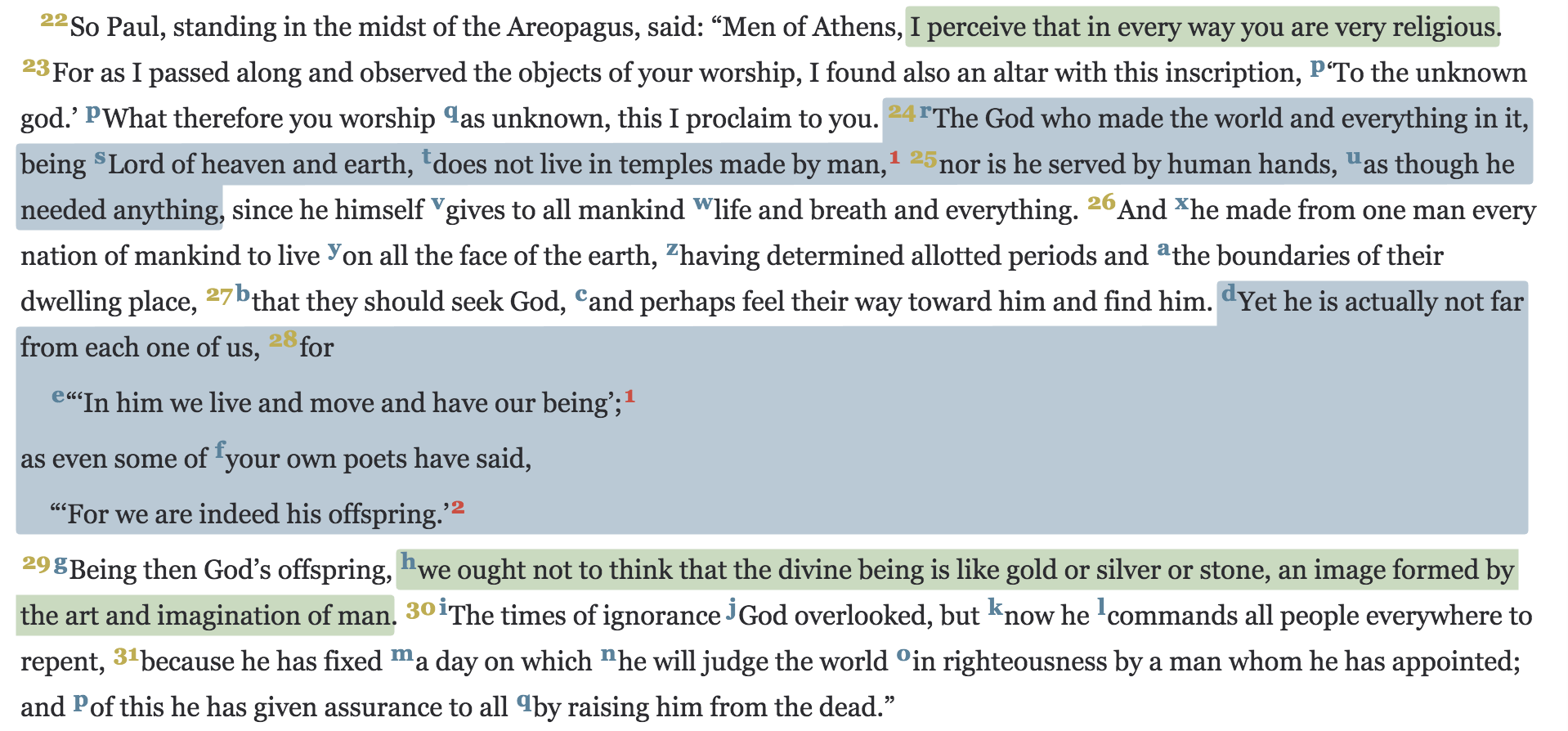Lesson 7 | The Word and the World [2]
Common ground or contrast?
Like the world and not at all
There is a time to seek common-ground connections between the world and the word.
And as [Paul] was saying these things in his defense, Festus said with a loud voice, ‘Paul, you are out of your mind; your great learning is driving you out of your mind.’ But Paul said, ‘I am not out of my mind, most excellent Festus, but I am speaking true and rational words. For the king knows about these things, and to him I speak boldly. For I am persuaded that none of these things has escaped his notice, for this has not been done in a corner. King Agrippa, do you believe the prophets? I know that you believe.’ —Acts 26:24-27
There are times to spotlight the stark contrast between the two.
‘Our fathers worshiped on this mountain, but you say that in Jerusalem is the place where people ought to worship.’ Jesus said to her, ‘Woman, believe me, the hour is coming when neither on this mountain nor in Jerusalem will you worship the Father. You worship what you do not know; we worship what we know, for salvation is from the Jews. But the hour is coming, and is now here, when the true worshipers will worship the Father in spirit and truth, for the Father is seeking such people to worship him. God is spirit, and those who worship him must worship in spirit and truth.’ —John 4:20-24
And there is a time to do both. Note the Common ground (green) and Contrast (blue) in Acts 17:22-31.

Deciding how to engage
How should we weigh when to seek common-ground and when to fixate on the contrast?
Certainly the text at hand ought to drive this decision in large part. Are we teaching a text that holds up values also esteemed by our culture? Then let us acknowledge it. Does the passage cut sharply against what those who live among us love? Let us not shrink back.
Still, this does not fully address how much emphasis we should place on such things. To answer this, we need to be ever growing in wisdom, and attentive to the Holy Spirit who guides us. Typically, we should focus more on contrast with groups we are at home with. We are already “in” and thus know the right words to effectively apply the sword of the Spirit. Let us just not be surprised or ashamed if this quickly makes us an outsider. If indeed it was proclaiming the word which ostracized us, then we have spent our insideness well. On the other hand, if opportunity has opened up for us to teach a group with which we have less connection, it may be helpful to start with common-ground so as to make a touch point from which to deliver God's word.
What we are trying to do in preaching is show the relevance of the Bible. We are to try to find a point of contact with people, and then make a point of conflict with people.
Tony Merida